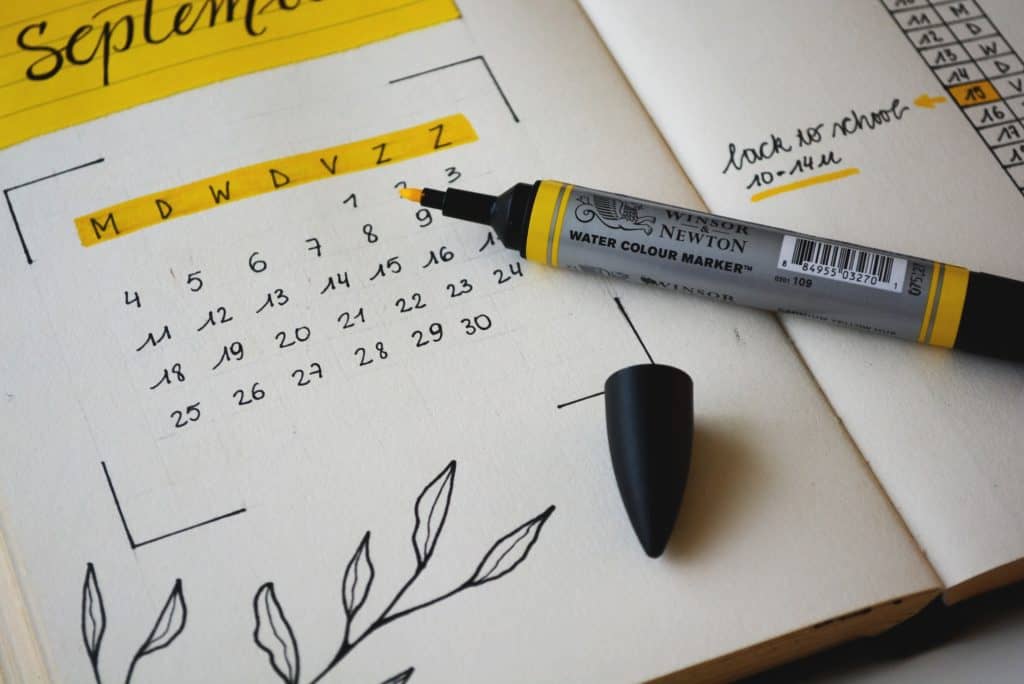Struggling to find a study technique that works for you? Why not take an uncommon approach or invent your own? Here are some unconventional study methods that have helped solve the study woes of other students, and they might just be your answer to making the most of your study time.
Keep in mind “unconventional” is subjective, and while these methods have been proven by some degree of scientific and anecdotal evidence, they are not for everyone. But with an open mind, they are worth a try.

1. Move. Stroll. Travel.
Hands up, fidgety people who cannot sit still. If you feel that you learn best by moving and doing, chances are, you are a kinesthetic learner. Incorporate movements in your study process, such as chewing gum, spinning a pen in your hand, or alternating between sitting and standing at your study desk.
If you have your lecture or notes recorded, you can do a lot with it. Take a stroll in the park and enjoy the sun while listening to your audio notes. Or make the best of a long commute by downloading your lecture capture and rewatching it on the go. Sometimes, a change of scenery is all you need to help you refocus and study better.

2. Study a little bit every day
Well-known language-learning app Duolingo sells the idea of learning a language slowly but surely by simply dedicating 15 minutes of learning time every day. If Duolingo’s 300 million users don’t seem to be deterred by its daily learning commitment, why should you?
The point is: a little study every day is much better than a lot of studying all at once. Get into the momentum of studying earlier than later. And as the exam dates draw near, you’ll find there isn’t much for you to prepare for.

3. Bring a memorised cheat sheet into your exam
Here’s how you bring a “cheat sheet” into your exams without cheating:
Identify a handful of important concepts you have trouble remembering and practise writing them down in bullet points as quickly as possible.
Go over these points in your head right before the exam to the very last minute.
Once you enter the exam hall and have the paper in front of you, scribble those few crucial points quickly onto a rough working sheet (not the exam page for your final answers) before you have a chance to forget them.

4. Listen to metal music
Some students have found that listening to heavy metal music motivates them and helps them to focus better during intense studying sessions. It is believed that upbeat metal music increases blood circulation and boosts brain activity, increasing concentration, recall, and even intellectual capacity.
It is also worth noting that this misunderstood music genre, often related to chaos and violence, can help to reduce anxiety and allow students better process their feelings and feel more relieved while studying.
Not a metalhead? That’s okay because there is also evidence that students tend to study better when they listen to the music they love.

5. Study before bedtime
Interestingly, research suggests that studying at your most tired time of the day—results in better recall. It is believed that when we sleep, the brain processes the information we learn during the day and consolidates it into memory. Studying just before sleeping helps to solidify these memories in the brain with fewer interferences from other information and activities, making it easier to recall them later.
However, this memory consolidation works best during slow-wave sleep (SWS), also known as deep sleep. In other words, it is important to ensure that you get sufficient quality sleep after studying to allow the brain to properly process and consolidate the information.

6. Create associations
Association is a powerful memory aid. We all experience sensory stimuli that remind us of something else. For example, the smell of rain could bring up a specific childhood memory. As such, connecting new information we want to remember with existing information we already know can help us recall the details better.
When it comes to creating associations, the sky is the limit. You can connect information to a person, name, thing, colour, number, event, image, song, or action. And because learning is supposed to be fun, when using the association technique to remember new things you learn, feel free to be creative and come up with amusing or even hilarious cues! But just make sure that your brain recognises them.

They say the best way to learn is to teach. And it is proven that a person will put in more effort to learn something with the knowledge of having to teach it to someone else later. This psychological phenomenon is known as the protégé effect.
So to challenge your knowledge retention of a subject, you might want to try teaching or explaining it to your grandma, nephew, or anyone who will have no clue what you are talking about. Your understanding will deepen as you find the words to describe the details. And who knows, you might get them to understand the information as well as you do or even be curious to learn more from you!

8. Dangle a carrot in front of yourself
Reward yourself often between your study periods for motivation and to kill boredom. It also gives you a good reason to take a break from studying.
Your carrot can be anything from a delicious cookie to a nap, a walk, a phone call with a friend, or a playdate with your pet. But your reward should never be a distraction to your learning process. As such, it’s best to stay away from computer games or social media. But if it makes you happy, go for it! Just be sure you know when to stop and return to your books in time to earn the next prize.

Conclusion
Different study techniques work for different students. Don’t worry if you’re not studying the same way as everyone else. You study for yourself. So do what’s best for your own study needs. And remember, the best student is often the one who has the most fun studying.

